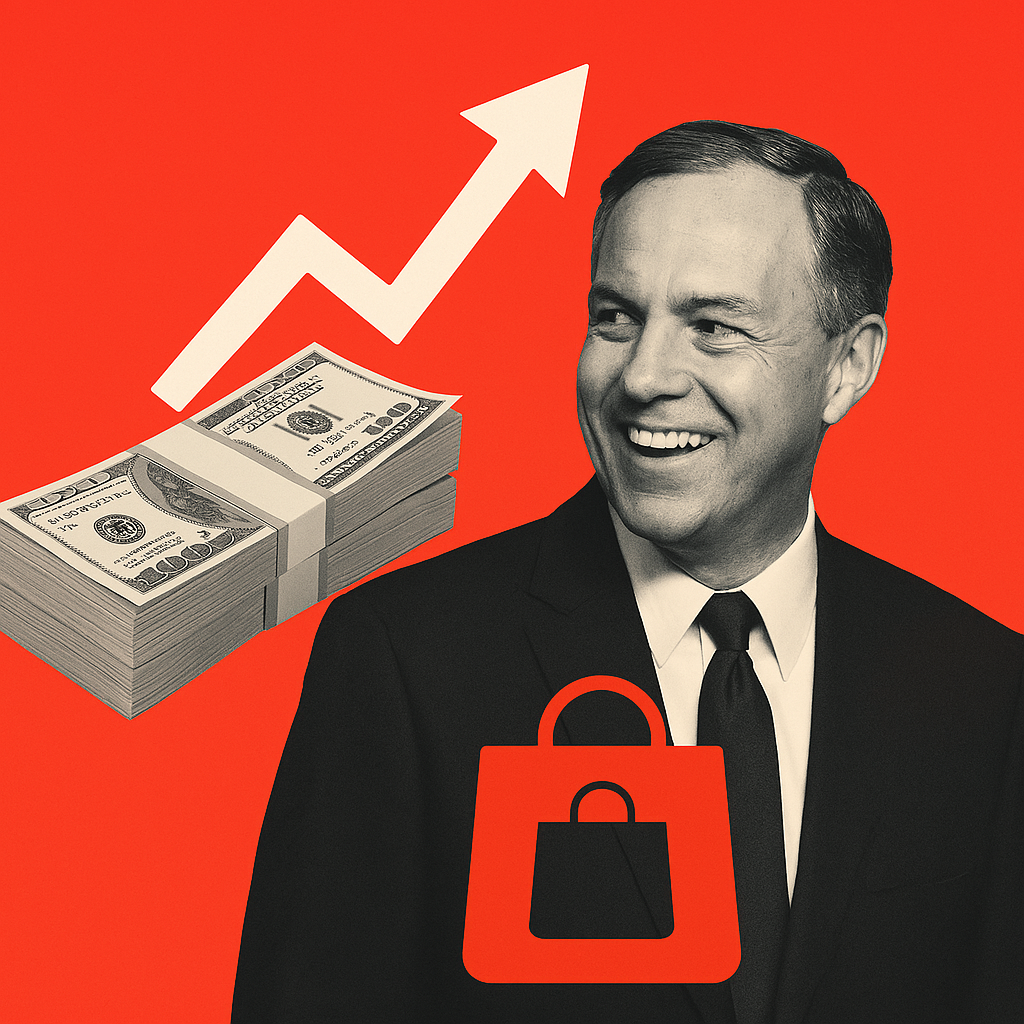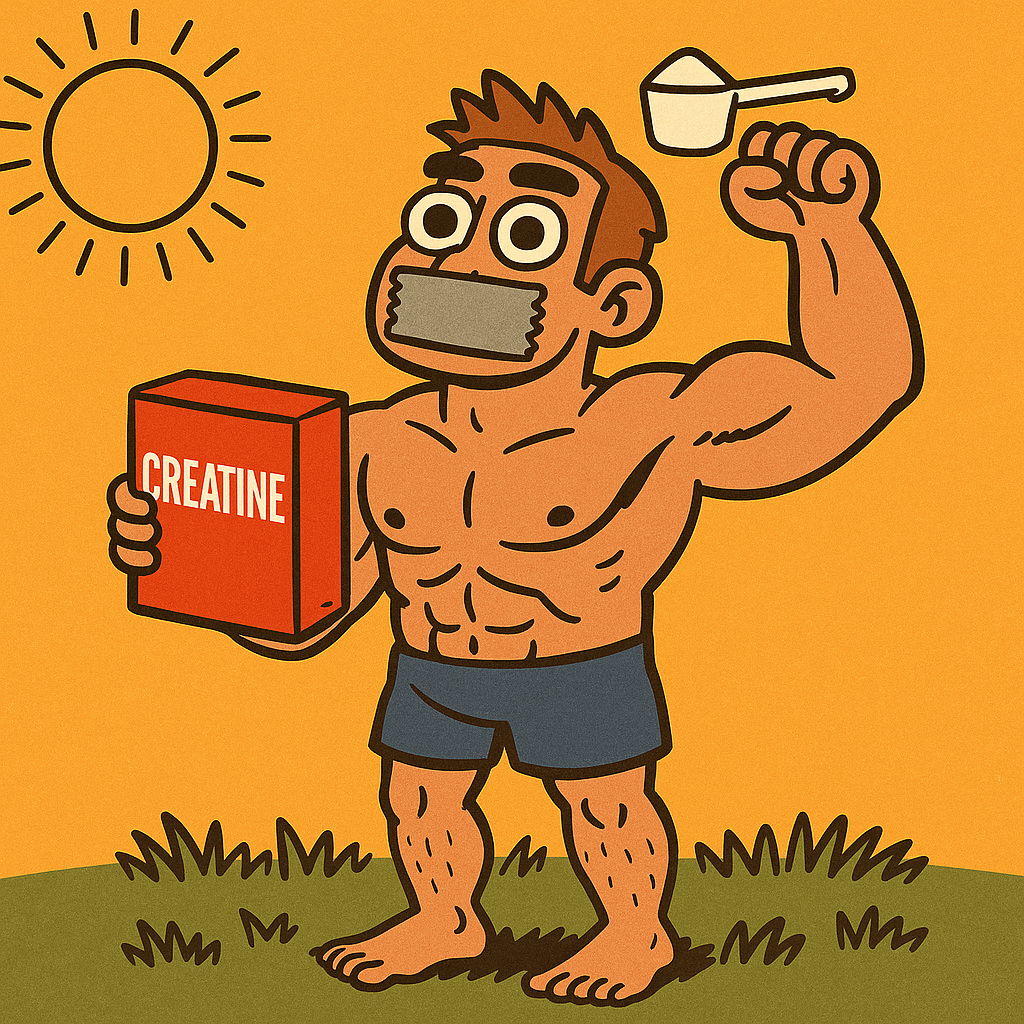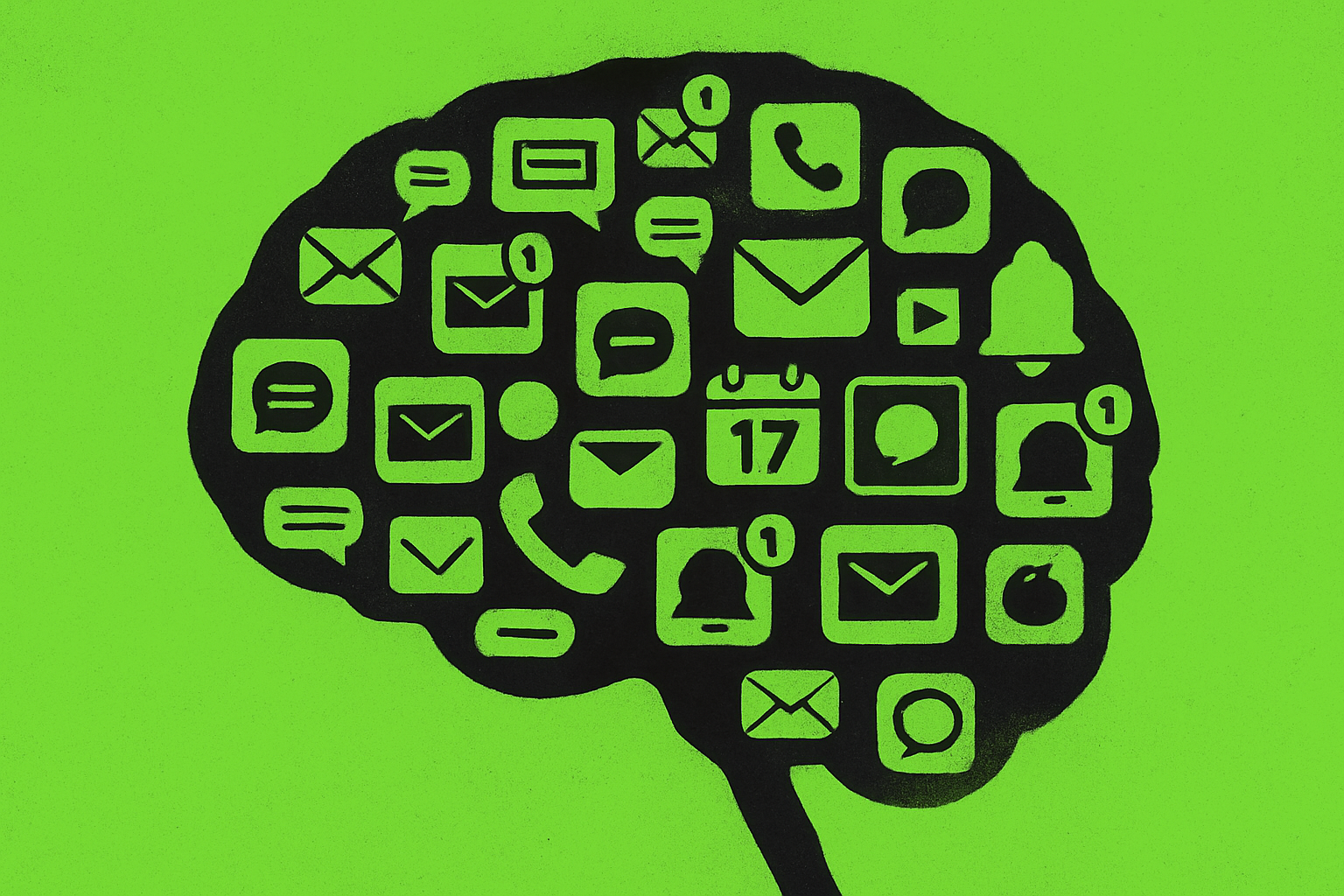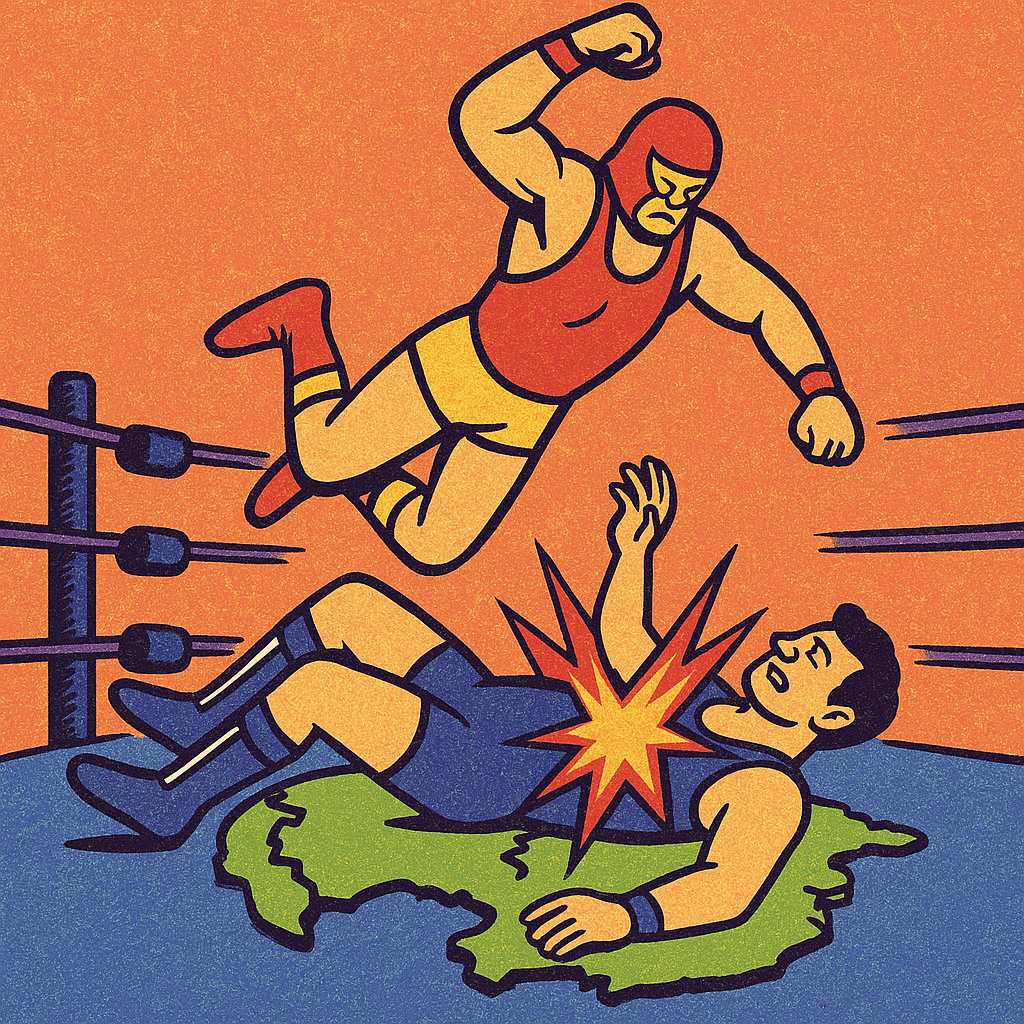Welcome to Tariffapalooza.
In just the past few weeks, Trump has proposed sweeping new tariffs on everything from Chinese electric vehicles to European steel, floated the idea of a 60% blanket tariff on all Chinese imports, and hinted at “universal baseline tariffs” for all trading partners.
It’s a dizzying barrage of economic threats, sometimes tweeted, sometimes teased at rallies, rarely backed by policy detail (besides that dope ass formula).
No one really knows what the eff is going on —least of all the people supposedly in charge.
Trump’s been floating sweeping new tariffs like balloons at a birthday party. Serious policy? Negotiating stunt? Just another headline-grabbing flex? Nobody really knows.
Until there’s clarity, markets are going to be B-A-N-A-N-A-S.
And while the chaos might seem like something for CEOs and hedge fund managers to fret over, the ripple effects don’t just stress the rich bois.
Today I heard some pundit or podcaster quoting this stat – the wealthiest 10% own 80% of the stock market…so any market crash is really just an “investor class” problem.
A rich man’s problem.
The rest of working class America? Apparently unaffected.
This idea is comforting – and dangerously wrong.
They hit 401(k)s. They hit small business budgets. They hit families wondering if this is the year they can finally fix the damn roof.
Yes, it’s true that the richest households own the lion’s share of stock by value—because they own the most shares.
But here’s the counterpoint no one talks about:
As of 2024, 62% of American households own some stock, whether through a retirement account, a Robinhood app, or the S&P ETF they bought during the pandemic. That’s a 20-year high.
More than six out of ten families are in the market in some way.
Here’s what that means in practice:
- If you only have $100,000 in a retirement account, a 20% drop is a $20,000 hit. That’s not just “paper wealth”—that’s a few semesters of community college, a pretty decent used car, a buffer for job loss or an urgent medical issue.
- Market losses change behavior. When your 401(k) drops from $300,000 to $200,000 in a month, you feel it. You may cancel the family vacation. You don’t replace the fridge. You skip the kitchen reno. That pullback ripples through the real economy, not just on Wall Street.
This is what economists call the wealth effect—when people feel richer, they spend more.
When people feel those dollars going up, they spend—on vacations, renovations, little luxuries.
And when they feel poorer, they slam the brakes.
The Fed once estimated that for every $1 folks gain in the market, they spend an extra 3 to 5 cents. Doesn’t sound like much, but when millions of households are in the game, that’s billions in ripple effect.
The NBER’s dug into this too—showing that when your 401(k) tanks, middle-class spending shrinks fast. Not because you cashed out – but because you opened your account and felt a gut-punch.
That anxiety travels—from your wallet to the real economy. Retail slows. Home projects pause.
People tip less, save more, spend little.
It’s not just numbers on a screen—it’s a chain reaction and a sinking feeling as soon as you log into your 401(k). (In fact, try not to log-in, if you can help it. I say why in this article on trying to find financial zen).
Summing it up
So when tariffs tank the market, or inflation spooks investors, or some global hiccup sends the S&P tumbling, it’s not just the country club bois tightening their belts.
The working class feels it. The middle class feels it, too.
Even if the value of ownership is wildly uneven, the psychological and practical effects are widespread.
This isn’t just about the wealthy losing a little extra. It’s also about regular people rethinking what’s possible.
If you enjoyed this blog post, sign up for my weekly-ish newsletter, Signal // Noise, where I share my honest notes on work, startups, life, and money. No bullshit or spam!






